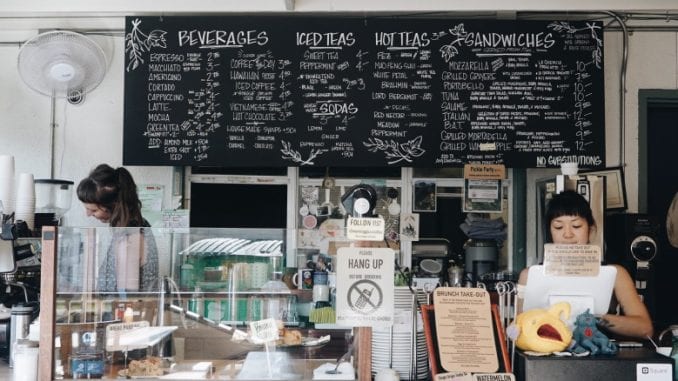
We conclude our Hawaii series with an installment focusing on coffee shop culture on the islands, and the growing professional barista community.
BY CHRIS RYAN
BARISTA MAGAZINE ONLINE
Cover photo courtesy of Morning Glass Coffee
If you’ve missed our “On An Island” series on Hawaiian coffee, you can read part one here, part two here, part three here, and part four here. In today’s final installment, we continue where part four left off by further examining Hawaii’s growing café culture.
While the specialty-coffee culture of Honolulu has come alive in recent years, the capital city located on the island of Oahu is not the only place with a thriving café scene. Another example is Maui—also a coffee-producing island, Maui has a fairly new but devoted group of specialty cafés. “Our scene on Maui is growing momentum,” says Byron Brown, owner of Maui’s Akamai Coffee. “We’ve been able to educate our customers along the way in the basics of specialty coffee.”
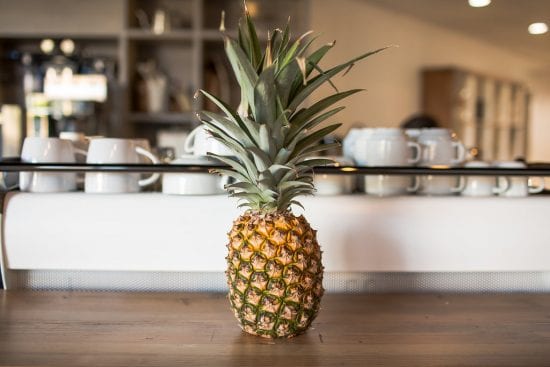
Akamai Coffee, launched in 2016 and now with two locations, serves exclusively Maui-grown coffees. Byron says he originally planned to import green coffees from different origins, but Hawaii’s Department of Agriculture has strict protocols on importing green coffee that involves either fumigation or outright banning—unroasted coffee from Africa, for example, cannot be imported to Hawaii.
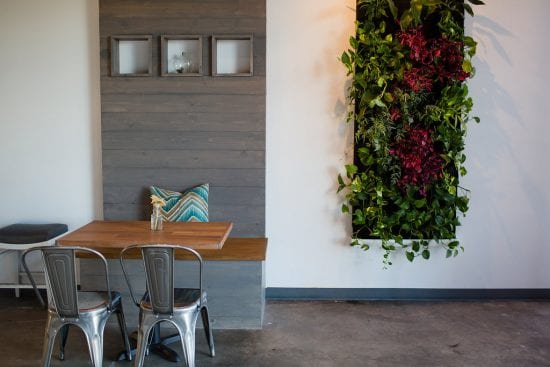
Instead, Byron decided to offer exclusively coffees from Maui, establishing relationships with local growers and sample roasting to arrive at an ideal profile. “Once we found we could get the Maui coffees to a flavor profile and standard that we were excited about, we committed to a larger-scale roasting operation and have never looked back,” he says. “Our customers embraced our vision and have truly championed us along the way.”
As consumers have embraced specialty coffee across the state, a strong community of like-minded coffee professionals has formed, all similarly devoted to sharing great coffee. “I think what is unique about the coffee scene is that for the most part it is made up of small local businesses that are learning and feeling their way together,” says Mahina Akimoto, general manager of Honolulu café Morning Glass Coffee.
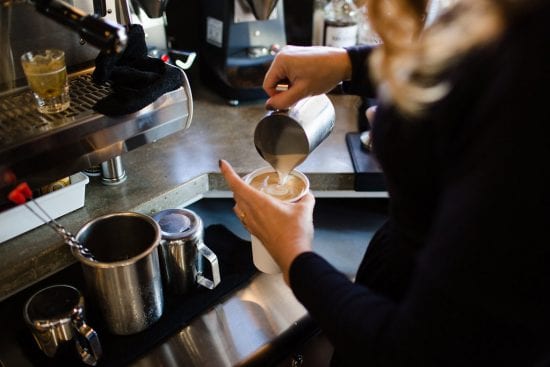
Earlier this year, Morning Glass hosted the Honolulu AeroPress Competition, and is one of several shops that routinely holds events to bring together the Honolulu coffee community for networking and knowledge-sharing opportunities. Courtney Heim, owner of Oahu café Brue Bar—which is opening its third location in Oahu’s Kaka’ako area—has seen these regular gatherings play a key role in nurturing the community. “As our local coffee community grows, there are more events popping up than ever before,” she says. “Although our local coffee community is relatively small compared to other coffee-centric cities, there is a lot of potential for growth, and we’re excited to see what we can become!”
That sense of community comes in handy for these coffee business owners when challenges arise—and in Hawaii there are some distinct common challenges, mostly having to do with the high cost of goods. Juli Burden, who works as a barista at Roadcase Coffee on Oahu and studies coffee agriculture at the University of Hawaii in Manoa, offers a brief summary: “Costs are extremely high for local cafés: wholesale milk is $6-$8 a gallon; rent is outrageous; and water quality isn’t great—usually nicer cafés require heavy filtration.”
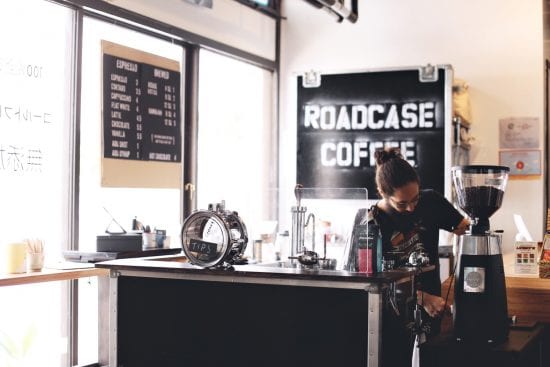
Mahina at Morning Glass says these high costs can make profitability a struggle, but she finds it’s worth enduring them to bring specialty coffee to a new audience. “Although there are potentially more challenges, we find that it is equally as rewarding to be serving some of the best coffee in a place where, until fairly recently, specialty coffee has not been quite as accessible to the community,” she says.
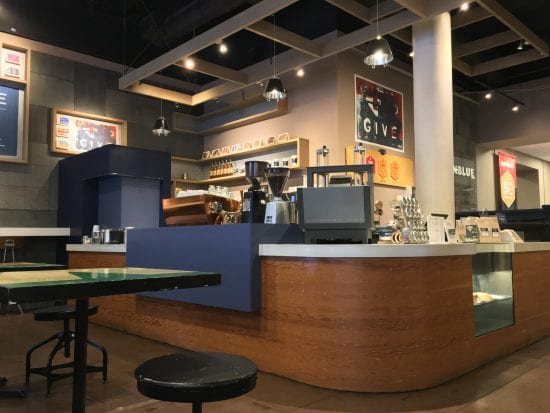
Now that it’s in high demand from Hawaiian consumers and tourists alike—and supported by a passionate community of coffee professionals—Hawaii’s café scene is likely to continue to grow stronger. It’s just another interesting facet of this unique coffee origin, home to gorgeous views and equally gorgeous coffees—and, now, beautiful places to drink them as well.


